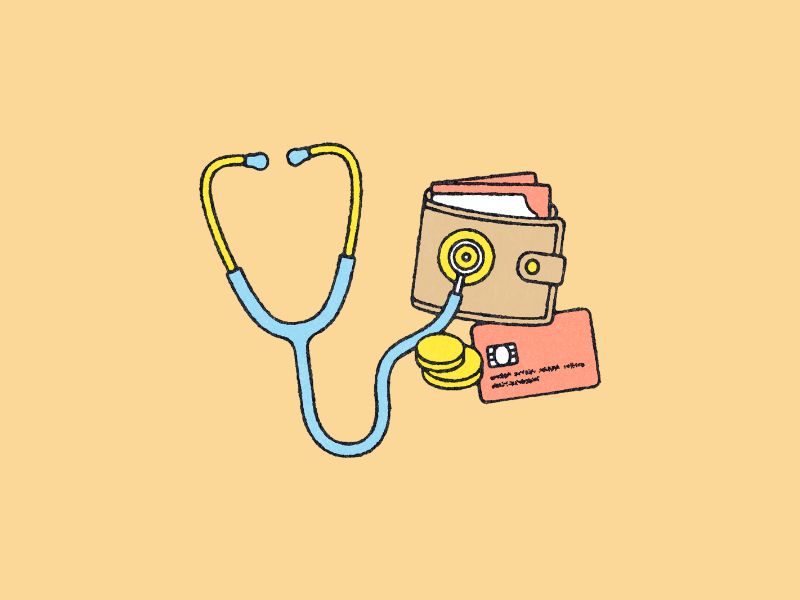
Does closing a credit card affect your credit score?
Could closing a credit card negatively impact your credit score? Let’s find out.
There are few better feelings than clearing the balance on your credit card. And if you no longer plan to use that account in the future, you may want to close it right away. But before doing so, you might wonder what effect closing a credit card will have on your credit score.
That’s exactly what we’re going to explore in this article, so you can close old credit card accounts (or choose to keep them open) without worrying about any potential consequences.
Understanding your credit score
When you apply for any type of credit, whether it’s a credit card, loan, mobile phone contract, or even a mortgage, the prospective lender will assess what’s often called your “creditworthiness” before making a decision. In other words, they need to determine how likely you are to pay off your debt in full and on time, because they won’t want to give credit to someone who may struggle with repayments.
We prefer to talk about your credit health, rather than creditworthiness, as anyone should be able to get credit if they put in the work to show they can manage it.
Your credit score is a number used to represent your credit health and indicate your potential appeal to lenders as a customer. Credit reference agencies — the main three in the UK being Experian, Equifax, and TransUnion — gather your financial history from your lenders and maintain a credit file on you, with information regarding any credit accounts you currently have open or have previously held. This information is used to calculate your credit score.
Each credit reference agency will likely show you a different score, since they use different methods to calculate it. It’s also important to note that lenders will also use their own credit scoring system. When a lender performs a credit search on you, they’ll be provided with the information from your credit report to use in the decision-making process.
Because each credit reference agency will show you a different score, seeing your credit report with Checkmyfile will help you better understand your credit health. We break down up to six years of credit history into one simple-to-use, independent and highly confidential review. Here, you can understand your habits, pinpoint patterns and spot any errors that could be impacting your overall credit health — without affecting your score. Get started now
Factors that impact your credit score
Your credit score is formed by analysing data from both public and private sources.
Publicly available information such as the Electoral Roll and court records will be taken into account, as well as private data, such as your credit history. What’s in your credit history will depend on whether or not your lenders have reciprocal data sharing agreements in place with the credit reference agencies.
A reciprocal data sharing agreement is when two companies agree to share data with each other.
Various types of credit accounts can affect your credit score, including the following:
Mortgages
Credit Cards
Loans
Overdrafts on Bank Accounts
Mobile Phone Contracts
Store cards
Home Shopping Accounts
Debt Collectors
Car Finance
Utility Bills (depending on how your payments are set up)
Rent payments (only if the landlord is enrolled in a rent reporting scheme)
While these types of credit accounts will have an impact on your credit score, it’s important to note that old data will eventually be removed. Credit agreements older than 6 years will no longer show on your credit report (as long as they’ve been closed), which can be positive or negative depending on the repayment history on the account. In the case of adverse entries, it’s good to know that it won’t stay on your credit report forever.
By the same token, however, old credit accounts that were in good standing will also fall off your report after 6 years, which is why it’s important to maintain your credit health at all times.
Remember that some things don’t appear on your credit report, like council tax, your income, employment details, and student loans.
What happens to your credit score when you close a credit card?
If you change your mind about a credit card soon after opening the account, you may want to close it before you’ve actually used it. You’re legally entitled to cancel a credit agreement within the first 14 days — this is known as the Right to Withdraw. The credit card account may still show on your credit report, but shouldn’t have any negative impact on your credit score. The credit application search will also remain on your report. If you have been using the card in the first 14 days you’ll need to return any outstanding balance before they’ll be able to close the account.
If you use a credit card, you keep up with your monthly repayments and you remain within the credit limit, positive payment markers will be reported on your credit report, which is great for your credit score. Even so, you may come to a point where you want to close the account.
There is a chance that closing your credit card can cause a small drop in your credit score. Let’s dig into the details about why this is the case…
Why did my credit score drop after closing my credit card account?
Even if you’ve kept up-to-date with your credit card payments and haven’t exceeded your credit limit, you may notice that your credit score goes down after you close the account. This may be confusing, but it’s nothing to worry about. The reason for this is that an open account with a good history generally carries more weight (i.e. it influences your score more) than a closed one with good history.
Closing a credit card can also affect your credit utilisation rate — the amount of credit you’re currently using. It’s generally a good idea to maintain a credit utilisation rate of up to 30%— this shows lenders that you can be trusted to borrow a moderate amount of credit without over relying on it. Showing you are a responsible borrower increases your chances of success with future applications.
The age of your accounts is also a factor in determining your credit score. This means that closing a credit card you’ve had for a long time with a positive payment history could result in a temporary drop in your credit score. This is because longstanding credit relationships count positively towards your credit score.
All of this means that it may be worthwhile to leave open an unused credit card account so that your credit utilisation rate doesn’t drop and healthy accounts remain on your credit file.
What happens if I close a credit card account with a poor payment history?
If you have a credit card with missed payments against it, this is likely to negatively impact your credit score. Your missed payments remain on your credit report, but over time their relevance for potential lenders may diminish. The payment history will typically be removed six years from the date of account closure.
Credit card companies won’t usually allow people to close their accounts until any outstanding debt is paid off. The same goes for bank accounts with overdrafts. If you want to close an account but you’re struggling to pay what you owe, contact the lender to arrange a payment plan.
Closing other types of credit accounts
The same rules apply to closing many other types of credit accounts, such as loans, overdrafts, or mobile phone contracts. Open accounts have more influence than closed ones, so don’t be surprised if you see a temporary reduction in your credit score after closing an account.
Don’t let this deter you from closing an account, as lenders will take all of the data in your credit report into account when deciding on future credit applications.
Closing a bank account
Not all bank accounts show up on your credit report since they’re not a traditional form of credit. This means that closing a bank account doesn’t usually have any impact on your credit score.
The exception is when your bank account has an overdraft facility, as that is a type of credit agreement. If you want to close a bank account with an overdraft, you need to pay off the remaining balance first. If the account is in good standing, closing it shouldn’t have a long-term negative effect on your credit score, although you may see a temporary drop, as with a credit card.
Recap: Does closing a credit card affect your credit score?
In summary, closing a credit card account can affect your credit score in various ways, regardless of whether the account is in good standing or not. If you change your mind before using the credit card, closing it is likely to have no impact whatsoever.
For older accounts, if you’ve kept up with payments and remained under the credit limit, you may still notice a temporary drop when closing the account. There are a few reasons for this:
Because open accounts have a greater influence on your credit score than closed ones
Your credit utilisation rate may increase as your total available credit limit decreases
Closing a healthy, old account may make your credit report seem less impressive
The effects of these are likely to be temporary, so they shouldn’t necessarily deter you from closing an account. Even so, you may want to leave a credit card account open to keep your credit utilisation rate low or ensure your oldest, healthiest credit account shows prominently on your credit file.
If you close an account with a poor payment history, this may be the best move in the long run since it will no longer show as an open account.
